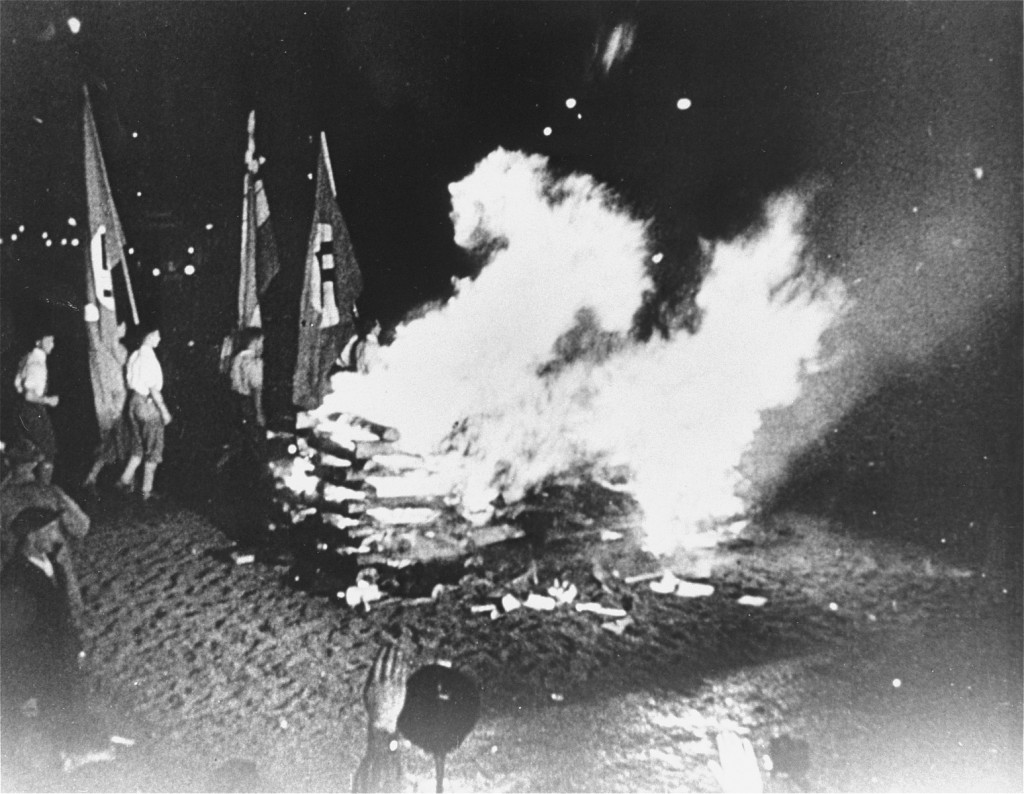
Erich Kästner
In 1933, Nazi students at more than 30 German universities pillaged libraries in search of books they considered to be "un-German." Among the literary and political writings they threw into the flames were the works of Erich Kästner.
Excerpt
On the battlefields of Verdun
the dead find no peace...
On the battlefields of Verdun
the dead stand up and speak...
On the battlefields of Verdun
the war leaves a legacy behind.
The choir of the dead says everyday:
have a better memory!
—Verdun, viele Jahre später (On the Battlefields of Verdun), Erich Kästner, 1931
Fire Oath
"Fire oaths" were statements to be read as books were tossed to the flames. The German Student Association sent out a circular containing these statements before the book burnings. The fire oaths then accompanied the burning of works written by the individual authors named in the statements.
Against decadence and moral decay
For discipline and decency in family and state
Heinrich Mann, Ernst Glaeser, and Erich Kästner
Which of Erich Kästner's Works were Burned?
All works published before May 1933 except Emil und die Detektive (Emil and the Detectives)
Who was Erich Kästner?
German writer Erich Kästner (1899-1974) first gained popularity in the 1920s as a political satirist. He was one of the most successful left-liberal authors of the Weimar Republic. Through his writings and lectures, Kästner stressed the brutality of World War I. He was also the author of a number of popular children's books.
At the book burning of 1933 in Berlin, which Kästner attended, his books were thrown into the fire to the accompaniment of a "fire oath." What caused the Nazis to burn Erich Kästner's books was not his highly successful children's book Emil and the Detectives, but his protest novel Fabian and some of his socially conscious journalistic pieces and satiric poetry.
Critical Thinking Questions
If Jews were the principal target during the Holocaust, why were books written by non-Jewish authors burned?
How did the German public react to the book burnings? What were some of the reactions outside of Germany?
Why do oppressive regimes promote or support censorship and book burning? How might this be a warning sign of mass atrocity?

